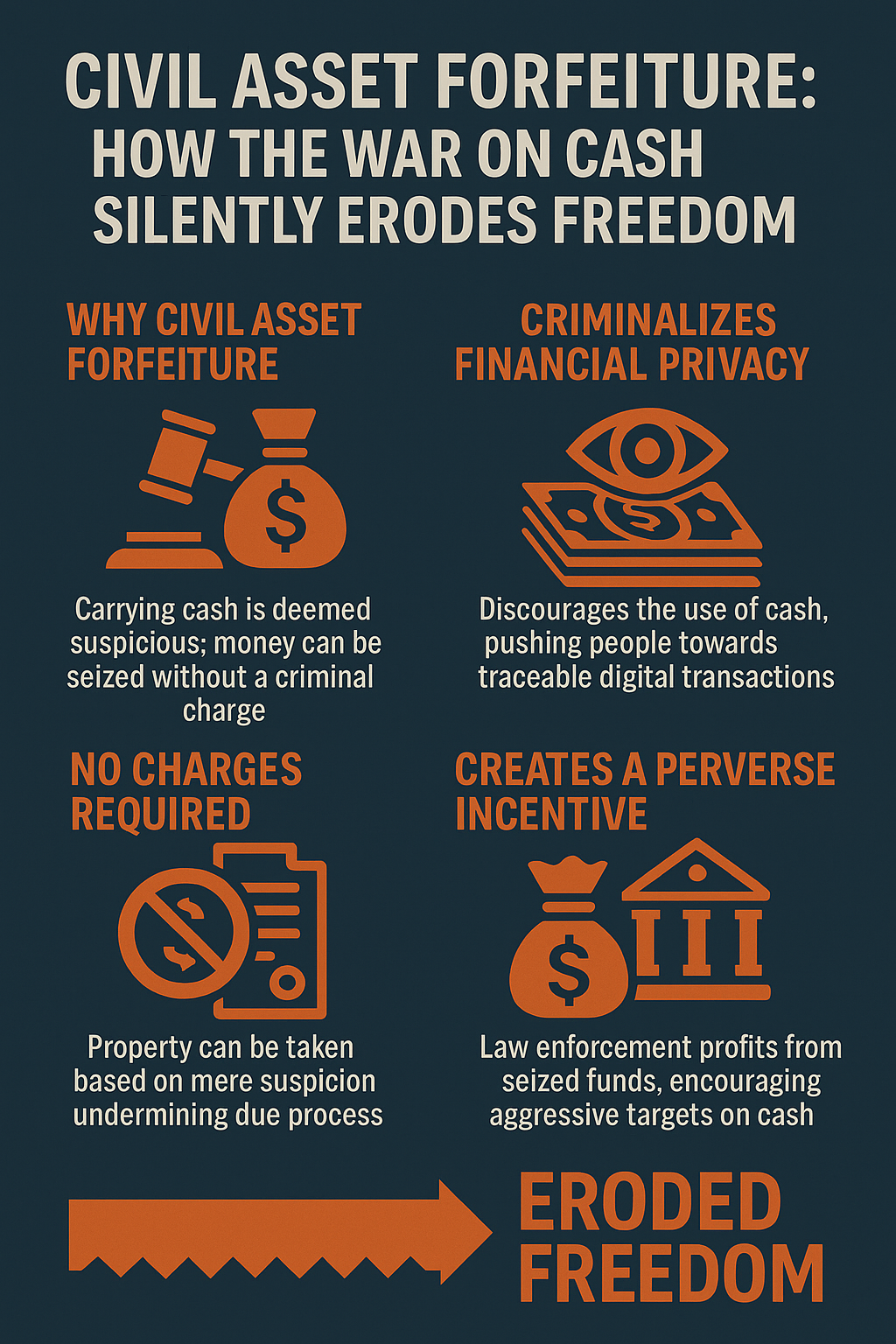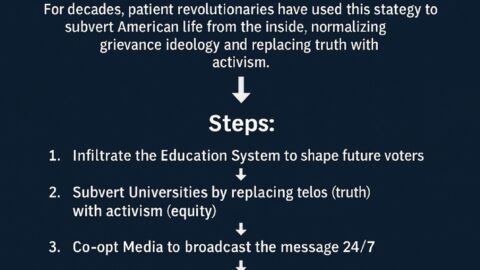Civil asset forfeiture is effectively part of a broader war on cash, especially when examined through the lens of personal liberty, due process, and centralized control.
What Is Civil Asset Forfeiture?
Civil asset forfeiture is a legal process in which law enforcement seizes property suspected of being connected to criminal activity — without necessarily charging the owner with a crime. The burden often falls on the owner to prove their innocence to reclaim the property.
Why It Functions as a War on Cash:
1. Cash Is Presumed Guilty
- Law enforcement often claims that possession of large amounts of cash is inherently suspicious.
- People traveling with even a few thousand dollars — often for legal reasons like buying a car or funding a business — have had it seized.
- This creates a chilling effect: carrying cash becomes risky, even if lawful.
2. It Criminalizes Financial Privacy
- In an increasingly digital world, cash is one of the last forms of anonymous transaction.
- Civil forfeiture discourages people from keeping or using cash, subtly pushing them into traceable digital systems.
3. No Charges Required = No Due Process
- Assets can be taken without charging the person with a crime.
- This undermines the principle of “innocent until proven guilty” and makes it difficult for citizens to defend their property.
4. Creates a Perverse Incentive
- Law enforcement agencies often keep a portion (or all) of the seized funds.
- This creates a financial incentive to target cash, especially in poor or marginalized communities.
Strategic Connection to the Broader War on Cash:
| Mechanism | Effect |
|---|---|
| Civil asset forfeiture | Makes carrying/holding cash risky |
| Anti-money laundering laws | Limits cash deposits and triggers suspicion |
| Bank deplatforming | Punishes those outside the digital grid |
| CBDCs (central bank digital currencies) | Centralizes and monitors all transactions |
Together, these form a control grid where freedom to transact privately is eroded.
Constitutional Concerns:
- 4th Amendment (protection from unreasonable searches and seizures)
- 5th Amendment (due process and just compensation)
- 14th Amendment (equal protection under the law)
Many civil liberties organizations — from the ACLU to the Institute for Justice — have called it a gross abuse of power and a violation of constitutional rights.
What Can Be Done?
- Legislative reform to require a criminal conviction before forfeiture.
- Abolish equitable sharing, which allows local police to bypass state protections by partnering with federal agencies.
- Public awareness and pressure to push politicians to act.
- Educate citizens about their rights during searches and seizures.
Conclusion:
Civil asset forfeiture is not just an abuse of power — it’s a deliberate attack on the freedom cash provides. It fits into a wider system that seeks to eliminate untraceable, decentralized economic freedom in favor of controlled, monitored, and permission-based systems.







